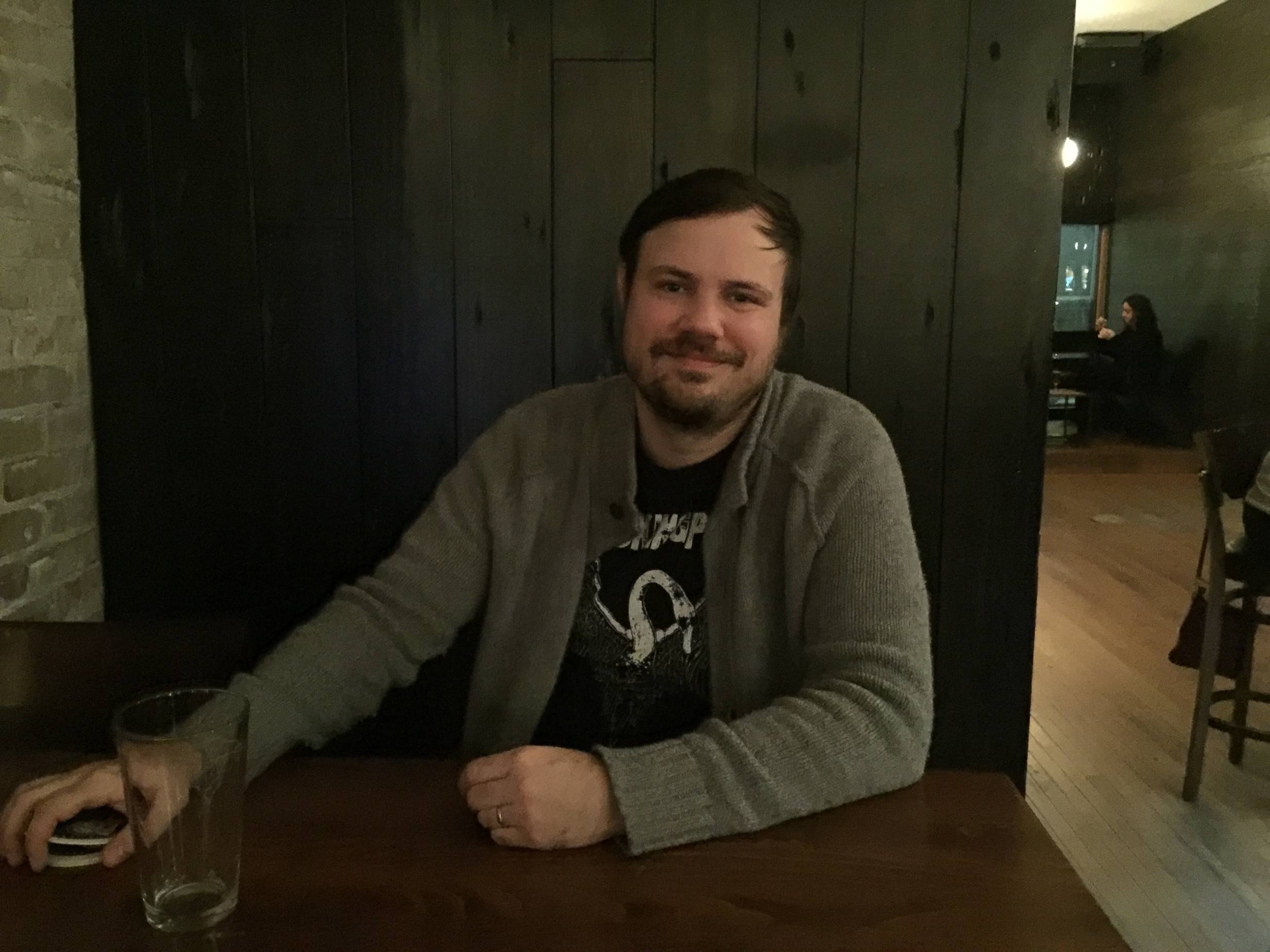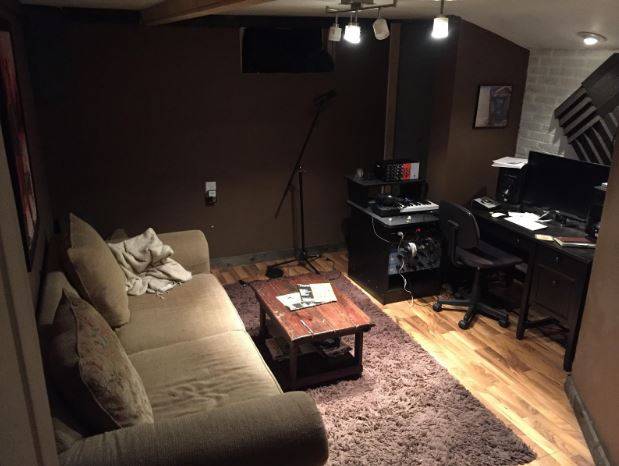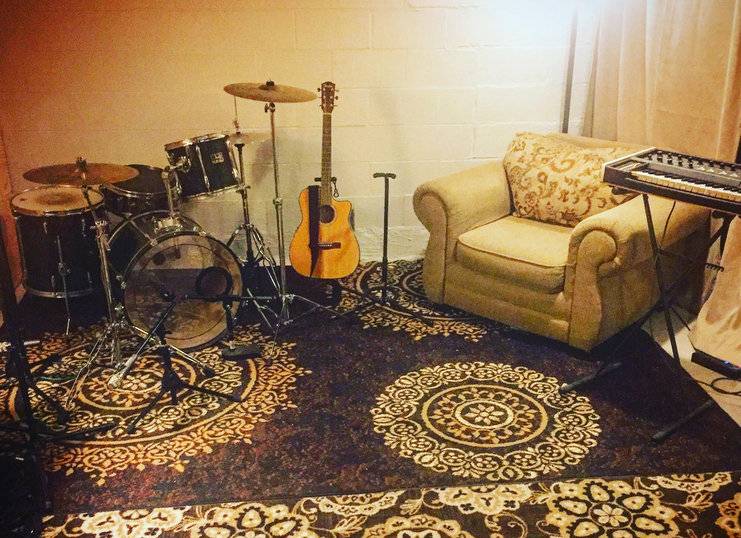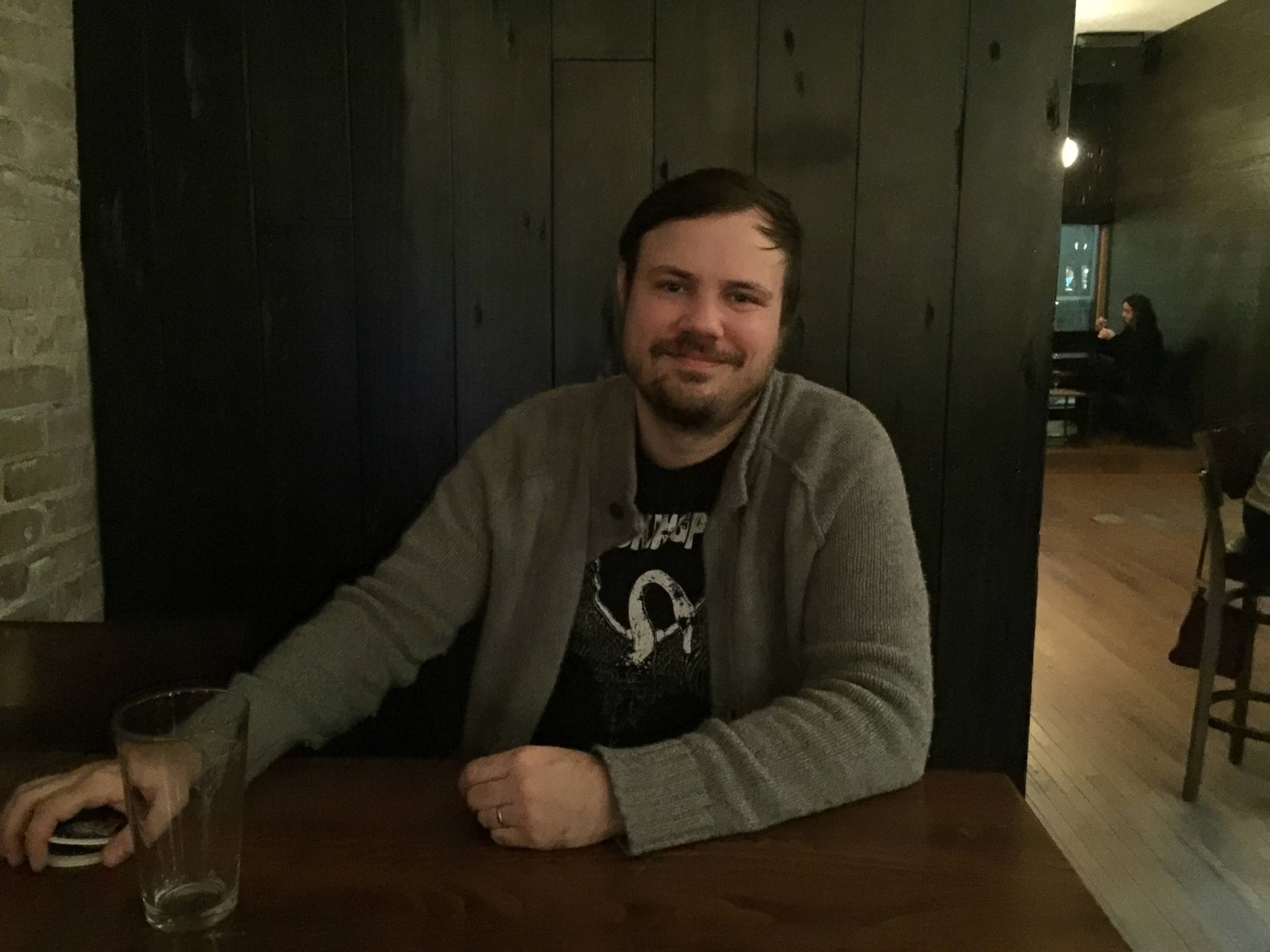We are lucky, in Champaign-Urbana, to have a robust local music scene. You may not know this, but in addition to the number of exemplary local artists and venues, we are fortunate to have a robust music-recording scene, as well. Generally speaking, bands these days have incredible opportunities for DIY production and DIY distribution. There is the opportunity to produce relatively high fidelity recordings on a shoestring budget, and, through the wonder of the internet, project those recordings out into the world. It is incredible, what you can do. To a certain extent, the cost of entry is low. Overall, that is a good thing. It means more opportunities for more aspiring musicians. The flip side, of course, is that the lower cost of entry means that there are more bands competing for attention, which of course means that it is that much harder for your band to get traction. The quality of that recording that you are putting out there is important.
I can remember being a 16 year old kid in a band, trying to get a demo recorded. The options were limited. There were three bands in my class. One had a Tascam Portastudio. I remember one of the kid’s mom’s let him stay home from school to bid on it on eBay. I am sure it was extremely cheap, but to me, who had a part time job as a fry cook, it seemed liked a brobdingnagian expenditure. Completely unattainable. DIY was not an option. One of my co-worker’s dads had an in-home studio. He was a super nice guy, who seemed to really know what he was doing. Unfortunately that meant that he also knew what was a reasonable rate for recording. Reasonable was also not an option. We needed cheap. Really, really cheap. Our last option was one of my best friend’s older brothers. He was going to the U of I, and rented a house on Ohio Street in Urbana, just off of Lincoln Avenue, and was doing some recording there. If I recall, I think we ended up paying $150 and a cymbal (with stand!) for an eight song demo. I also recall that they irretrievably erased one of our songs during the mastering process. Still, not bad.
Throughout college, I began collecting little pieces for my own, DIY, recording efforts. Nothing fancy. Just a few mics and an interface. Honestly, in this day and age, it’s an ability that you need to have as a musician — both in terms of ability and equipment. Whether it’s for writing purposes, demoing, or simply archiving an idea, you probably need to be able to do it. I’m not bad. I’ve got a few little tricks. But that being said, I also know my limitations, and you should too. At some point, you hopefully make something that, for whatever reason, you feel needs special treatment. You may think that a particular album is actually pretty special to you, or, you may find yourself believing that it could do something. Maybe sometimes you think that, even though you tell yourself that you do not think that. Anyway. Whatever the reason, if that’s what you are thinking, then you need a studio.
What I did not know, as a teenager, was that I had options; that there is a panoply of studios in this town, ranging from modest, mostly digital operations, to beautiful, mostly analog, as-good-as-it-gets options. While this may have been mostly irrelevant to my cheap, teenage self, I wish I had known the options that were before me. Through this Master Tracks series, it is my intention to cast some light into the recesses of this somewhat mysterious world, the Champaign-Urbana studio scene, so that if you find yourself looking for a studio, you will know where they are, and who you can reach out to there.
For this first installment, I spoke with my former bandmate and dear friend, the talented Mark Wyman of ToneGood Studio. ToneGood itself is brand new, but Mark is an experienced engineer and musician himself (the guitarist for We The Animals), and he is no stranger to the studio.
 Mark Wyman of ToneGood Studio.
Mark Wyman of ToneGood Studio.
Smile Politely: Are you hosting artists at your studio yet?
Mark Wyman: Actually I do a ton of hip-hop at home. Guys will come over, with something that they’ve had produced, or like mix tape stuff, that’s basically a ripped beat that they won’t make any money on, or however they do it, and I just set up a mic in this trapped off corner that I have and record ‘em.
SP: Mainly doing vocals?
Wyman: I’ve done a ton of vocals and a ton of guitar. The first band that I have coming over is a punk rock project that I believe has two guitar players right now. They have enough songs to where they are looking to record, and they will be my first full band project. Edna is their name.
SP: How did you get into recording?
Wyman: I’ve just always been fascinated with it. I always thought cassette tapes were fascinating machines. When I was like, eight years old or so, I would record radio shows, and then I found out there were boomboxes where I could plug in a mic and record on a tape, so I would then begin, with my sisters, creating radio shows onto a tape.
SP: What was the format of your radio shows?
Wyman: [Laughs] I don’t know dude! An eight year old and his two sisters, talking shit over Duran Duran and Michael Jackson songs? Then I finally got to the age where I was impressionable enough that music started having an effect on me, and I started playing music. So recording, and archiving music, became really fascinating to me.
SP: So did you do a lot of 4-track and 8-track recording early on?
Wyman: Oh yeah. Absolutely. Whatever I could get my hands on. You’re always troubleshooting “What’s the best way to do this with the least amount of stuff?” because you’re 14. You don’t have anything. You might get a microphone for Christmas, or one of the little 4-tracks, and I always had those around. When I was 17, I was in a band where we all felt like, “We have four songs, let’s record ‘em!” My buddy’s uncle came over, and he had one of those old 8-track, simultaneous input, Tascam Portastudios. I did as much as I could to get my nose to the stone with that, and just figure out how you do things, why you do things. When I did go to college I went for Audio Production at Southern. So that’s where I really started learning a lot. Then I got an internship at Engine Studios, which is where AudioTree is now. I got to work with a lot of really cool people up there. I got to work with Brian Deck, and Balty De Ley. Balty was in a band called Menthol, from Champaign. So I really got to cut my teeth with those dudes.
SP: So what were you doing up there?
Wyman: Interning! Getting coffee for crazy famous engineers. [Laughs]. But then like, I can remember this crazy look on Brian’s face, where he’s got to stay in front of the board, but he’s like looking around, and I’m the only one around, sitting on the couch, while he’s recording Iron and Wine, and he’s like, “Get that tape. Get that tape reeled up.” And I knew how to do it, but in that situation it was super scary. The Iron and Wine dude’s in there, and he had just been on the cover of SPIN magazine, and I had put that together like ten minutes before then. So I was just freaked out. I was like, “This is a big deal, man!” Sam Beam is in here, and I’m just like, frozen in my tracks. My mind went blank, and it took me five minutes to do something that I would normally feel comfortable racing somebody to do. But that’s how you learn, in those super stressful situations, where you’re like, “I have to figure out something.” And you do.
 The ToneGood Control Room.
The ToneGood Control Room.
SP: When did you start recording bands on your own?
Wyman: I started at a place in Westville. There was this studio in this fella’s house. It was called Midget Pistol. It was all ProTools, all Control 24, so I was super comfortable in there. He had a decent mic collection, and the room sounded good, and he had a really nice drum set too–an old, 60’s Slingerland, and so, even though it was only like a seven and a half foot ceiling, you could get super good drum sounds in there. For what I was doing, and for my knowledge base at that point, I listen back and I’m like, “That was kind of cool, man.” I’m still proud of that. So after that, I started bugging [Matt] Talbott, [the owner of Earth Analog Studio,] being like, “Hey man, I want to get in there, I want to do this.”
SP: Is the goal of an engineer, as you see it, to accurately capture the sound, or do you want to add some color, or style, or perspective to it?
Wyman: One of my primary jobs as an audio engineer is archiving the music. You are basically collecting information that the people involved at least probably want access to forever. So that is job number one. Secondly, it’s to be able to do it accurately, as requested by the client. Finding out what it is that they want me to archive, and doing it as accurately as possible.
SP: Do you feel like you have a style that you gravitate to? A real good live sound, or a more polished sound?
Wyman: I prefer to get everything done right at the source. I don’t want to fix it later, anymore. I feel like, probably five years ago, there was a lot of comfort in the idea that I could fix it later. Because you could just go, you could just hurry, you could just get it done. But now, I want to get it right the first time. So that requires me making sure that everything, technically, is going right, but it also requires a good performance.
I think the thing that I get the most praise for is drums. There have been several bands that have come to me just to do their drums. I am pretty nitpicky about it.
SP: Do you think there’s some inherent value in a one-take track, with few overdubs?
Wyman: Oh yeah dude. [Like] if you have a band that can perform the song live, and they can come back into the control room and listen back, and say, “Yeah, I’m happy.” If I can take that home and mix that, it is going to be better every single time, than doing overdubs.
SP: Why is that?
Wyman: There’s just a feel. You can hear things get off kilter a little bit. Like there are parts in REM songs, where it’s like, I can’t even tell what’s going on, but they made the decision that “This is how this song goes.” That’s part of the archiving. I think it’s really important for a band to have the ability to do that, and to act on it. I can do overdubs all day long, that’s part of my job. But I am way happier if I have a four piece, five piece band, that can go in there, come into the control and say, “Yep! That’s it! We’re done. Let’s go back in there and record another one.” That’s optimal. It doesn’t happen often.
SP: What’s lost, do you think, with overdubs?
Wyman: I don’t know. Nothing? For me, it’s what’s gained by doing it live. The ability to do it, is a gain. That says there’s chemistry. They’ve practiced. There’s some kind of unique energy. It’s happening spontaneously.
 ToneGood “live” room. “It’s a work in progress,” says Wyman.
ToneGood “live” room. “It’s a work in progress,” says Wyman.
SP: Do you have anything you would say, to a 14 year old kid, who is deciding between whether or not to put $400 into recording their band at a studio, or to put that money into a PortaStudio or an interface for their computer?
Wyman: That’s a good question. I would tell them to look forward to doing both. If you’re saying, “Hey, is this something that I may be doing for 10 years…” do you want that experience? Say they have $1,000 to spend. There’s the fork in the road. You can spend all that money on the gear that you need, but you still have to learn how to use it. You still have to be able to do it. That’s a ton. Maybe how about this time, I cut you a deal. You hang out over my shoulder. I can help you figure out what to buy. How to use it. Because I think it is really important to do both. As a musician, I think it’s important to be able to go into a studio and not have to think about [engineering]. Like, when I’m playing with We the Animals, I don’t want to think about that shit. I think it’s really important to keep that divide.
SP: If a band has, hypothetically, a four song demo that they want to record, is there a ballpark for what that would cost at ToneGood?
Wyman: For four or five songs, to track, mix, and master, and for dudes that are on a budget, I’m charging $250 for all day. I don’t think I’m shorting myself, and I know I’m doing the band a favor. I get to hang out at home, and I get to have lunch with my wife that day.
SP: Thanks for taking the time!
Wyman: Absolutely, man.
———————
Mark Wyman can presently be reached via email, at markwyman1981@gmail.com, or, in the near future, at ToneGoodstudio.com.








